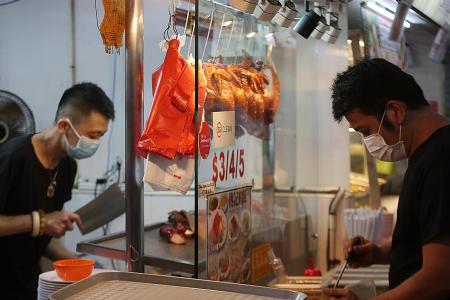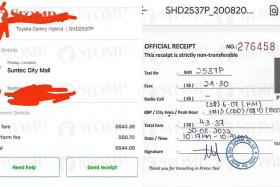Chicken prices may rise amid growing feed prices in Malaysia
Sellers mulling whether to absorb higher costs or pass on to consumers
The Republic's favourite chicken rice dish may be more expensive in the coming weeks, on the back of chicken production costs hitting record highs in Malaysia.
Suppliers said that prices of fresh chicken are expected to increase by about 10 per cent, with the cost of a live chicken from Malaysia surging to between RM7 and RM8 a kilogram (S$2.26 to S$2.58), about 30 per cent higher than what it was a few weeks ago.
This is being driven by the higher cost of raw materials, such as corn and soya bean, which are the main ingredients in poultry feed.
Some chicken and chicken rice sellers told The Straits Times that they have already been informed by their suppliers and are deciding whether to pass on the cost to consumers or absorb them.
Singapore's Poultry Merchants' Association chairman Ong Kian Sun said that chickens used to cost about RM5.80, but in the past week, prices have climbed sharply.
He said: "With the cost of chicken feed rising rapidly, some farmers in Malaysia are also unwilling to breed as many chickens as before. This will affect the supply and drive the price higher."
Chicken is the most widely consumed meat in Singapore, with a per capita consumption of 36kg last year, according to data from the Singapore Food Agency.
Singapore imports more than a third of its chicken supply from Malaysia.
WEATHER CONDITIONS
The price of corn has been skyrocketing since last August, with the price of soya beans hitting a peak in May this year.
Market reports have cited adverse weather conditions in corn- and soya bean-growing regions, such as the US and Brazil, for driving up the prices of the agricultural commodities.
Mr James Sim, head of business development at Kee Song Food Corporation, said: "The combination of these ingredients (corn and soya bean) has the highest nutritional value if we want the chickens to grow as much in the shortest amount of time."
Those in the industry said manpower and transportation costs, which have been rising in Malaysia because of Covid-19, have also contributed to the hike.
Mr Oh Wei Chiat, chief operating officer of Boong Poultry, which imports about 12,000 chickens from Malaysia daily, said the price it pays for chickens has increased by about 20 per cent in the past week to about RM6.60.
Mr Oh said: "I have never seen prices rise so sharply before, nor have I seen it hit this high since I started working in the industry."
He will consider importing more frozen chicken to give consumers more choices. Frozen chicken is typically cheaper than fresh chicken.
Mr Michael Poh, 41, who runs a chicken rice stall at a coffee shop in Toa Payoh, said he might have to raise prices for the chicken rice he sells from $3 currently to $3.50 next month.
"This is really the last resort, as we have been absorbing the rising costs - from gas, to oil and rental - in the last two years," he said.
Get The New Paper on your phone with the free TNP app. Download from the Apple App Store or Google Play Store now


